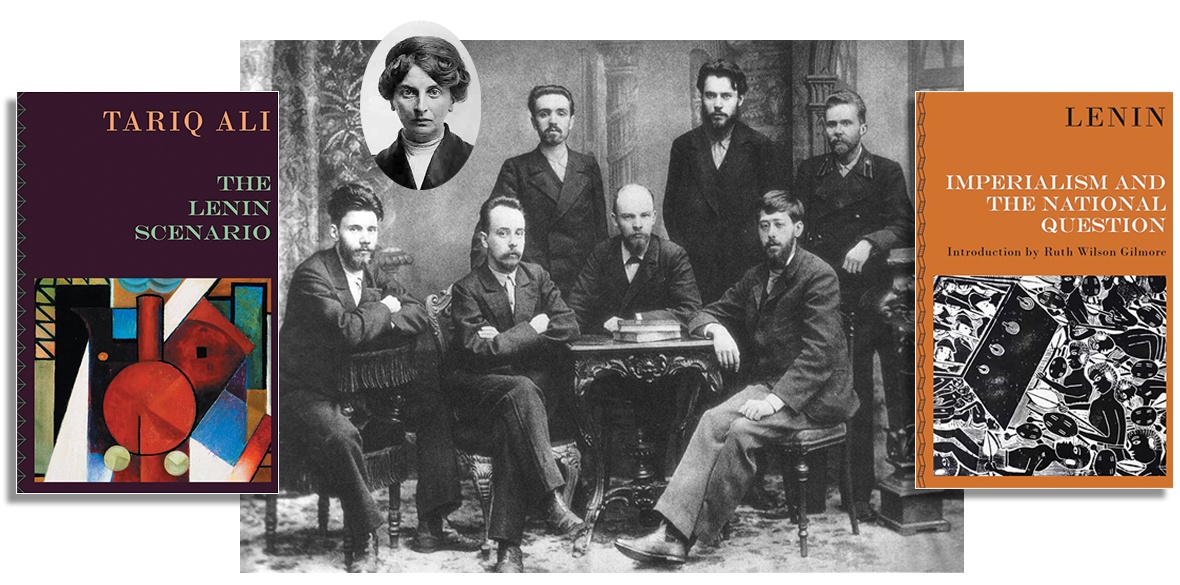This is the last article you can read this month
You can read more article this month
You can read more articles this month
Sorry your limit is up for this month
Reset on:
Please help support the Morning Star by subscribing here
The Lenin Scenario
by Tariq Ali
Verso £12.99
Imperialism and the National Question
by VI Lenin
Verso £14.99
LENIN: THE MOVIE is a film that has never been made, although the raw material is promising enough. Now that the 100th anniversary of the revolution he led and the centenary of his death have both come and gone, it may be that it never will.
Of course, there are doubtless Soviet-era hagiographies out there, and works of higher quality in which Lenin appears. But nothing that tells the story of the man in all its richness.
Tariq Ali had a plan to set that right and wrote a script back in 2015, when those two anniversaries were looming ahead. After various disappointments on the funding front, the script languished unread until now, published by Verso as part of a small selection of volumes by or about Lenin as we pass a century without him.
As one would expect from Ali, it is well written and insightful. He tells the story largely through Lenin’s relationships with his unacknowledged — at the time — lover Inessa Armand and with the Menshevik internationalist intellectual Julius Martov.
The first is a relationship of love and intense comradeship, the second is love-hate in which admiration for Martov’s insights is mingled with despair at his irresolution.
Of course, there are any number of other ways of telling this compelling story, but this one works well as a means of both dramatising Lenin’s humanity, so often underplayed in official records, and the political choices he faced.
In relation to Armand there is inevitably a large dollop of speculation in Ali’s rendering of their relationship. Was Lenin as passionate as presented, and was his wife Krupskaya as indulgent of the affair? Who really knows, but this is a film script, not a work of historical biography.
Martov is given the role of anticipating the confounding of Lenin’s intentions by events, and we are on firmer ground here both in terms of the warnings issued by the Menshevik leader and the undoubted respect Lenin had for him, even as they separated politically.
Trotsky, unsurprisingly, emerges well, although Ali does not spare him Martov’s prescient rebukes either. The agonies of the Krondstadt uprising against the Bolsheviks and of Armand’s early death entwine in their erosion of Lenin’s hopes.
The tragic element is developed too. In October 1917 we meet Lenin “pacing up and down, talking to himself” as per the stage directions. “What if there’s no uprising in Germany? Impossible. There will be. There must be. There has to be.”
Of course, the impossible happened and the revolution in Germany did not. The 20th century turned on that failure as much as on Lenin’s own success in Russia.
The legacy of Lenin lives more today in his anti-imperialism and his insistence on the unity of socialism with national liberation as an operative principle for the left. So it is welcome that among the selection of volumes chosen for republication by Verso is a collection of his writings on this issue, including the famous 1916 pamphlet Imperialism.
Lenin’s analysis after 1914 had the effect of broadening the socialist frame of reference from Europe to the world and from the working class alone to all oppressed and exploited peoples.
It remains a majestic achievement, and one contemporary socialists neglect at the price of historical redundancy.
Disappointed in Germany, Lenin nevertheless believed that Russia, China and India united could guarantee the defeat of imperialism and the future of humanity.
In the age of the rise of the BRICS grouping, albeit not on a revolutionary basis, that too seems a relevant as ever.
Ali’s film many never stream on Netflix, but the urge to probe this most remarkable figure by artistic means as well as more conventional analysis — a work Ali undertook in his recent The Dilemmas of Lenin — will surely remain.
It is a paradox that while Leninism appears ossified, we nevertheless live in times which require Leninist explanations. Perhaps creative works can unlock doors politicians beat against in vain.
The vividly sketch of revolutionary practice in The Lenin Scenario is suggestive in that direction.








